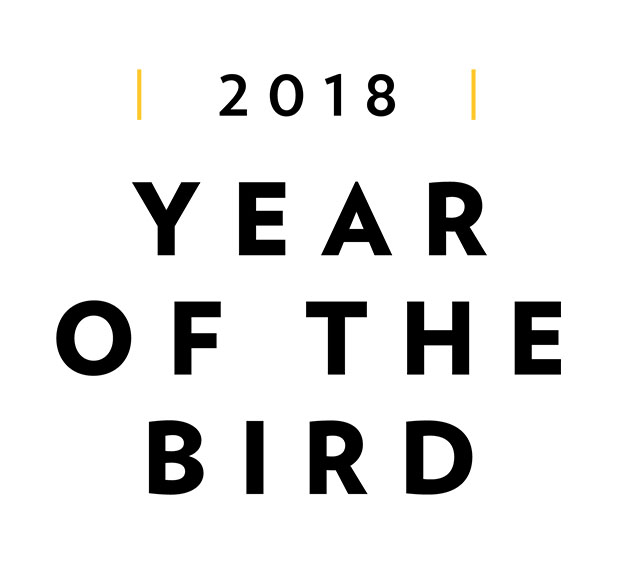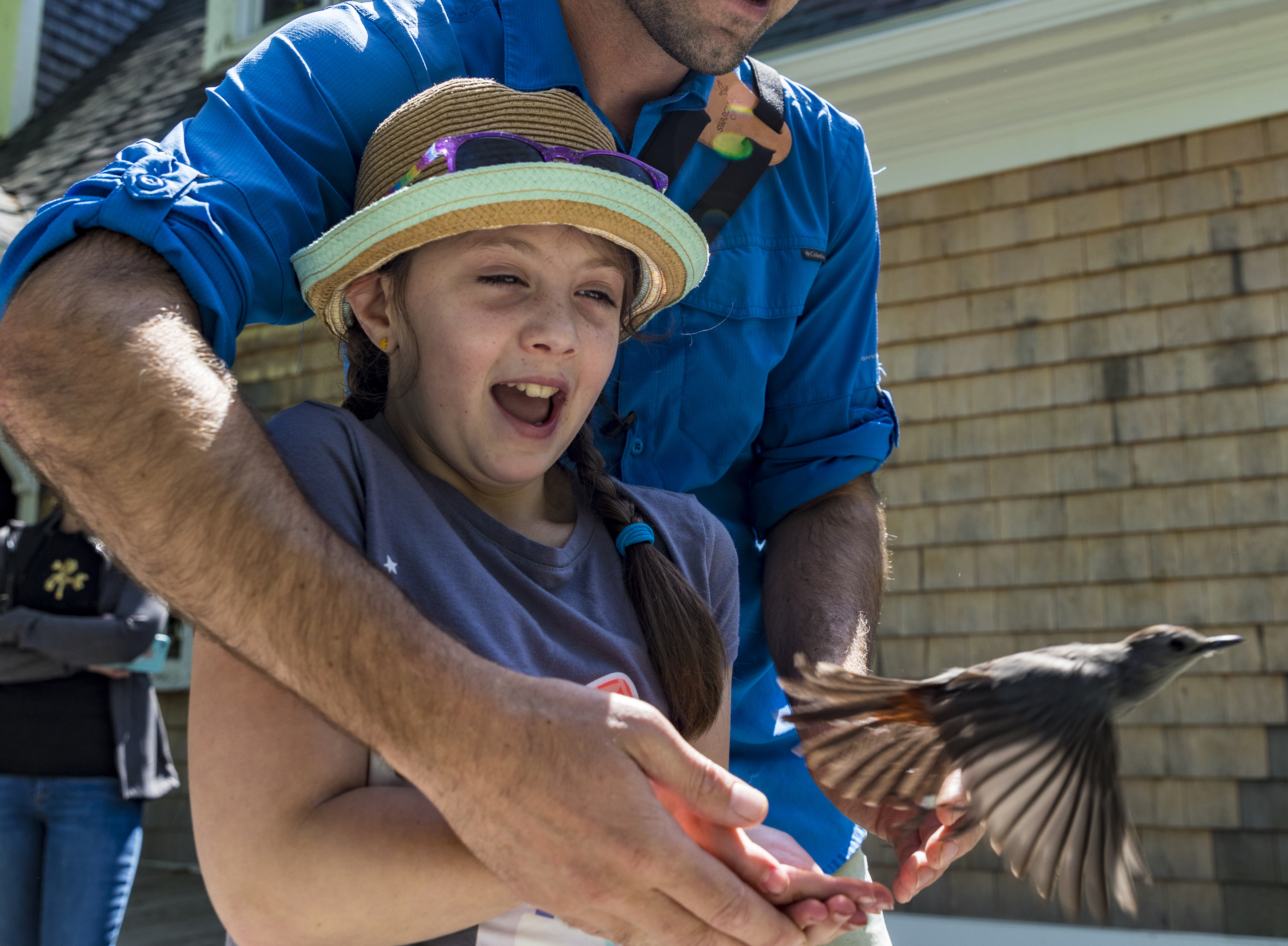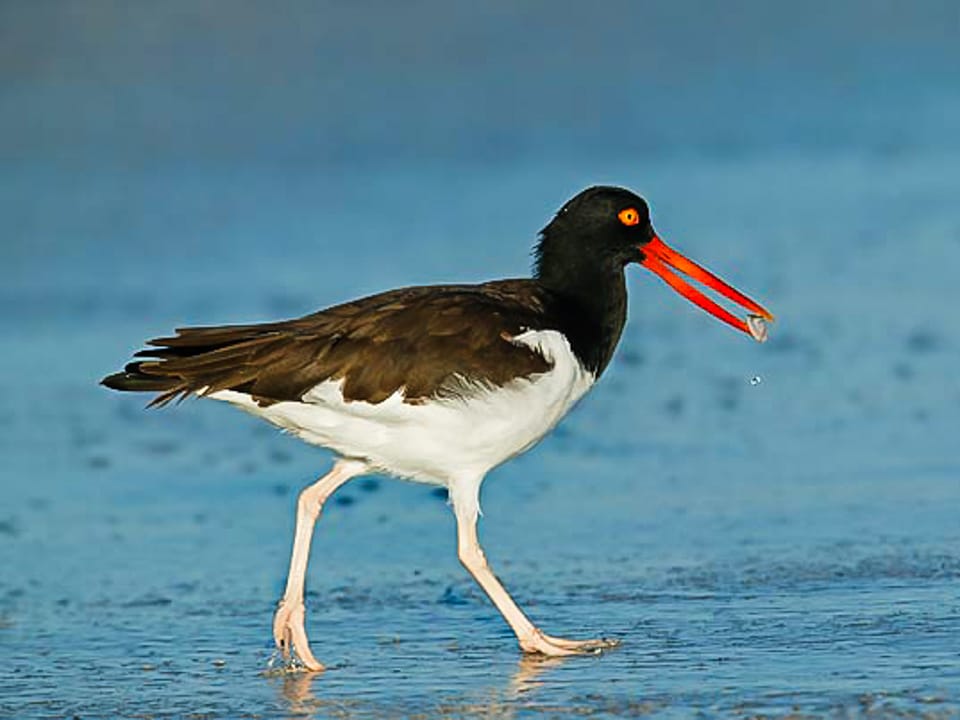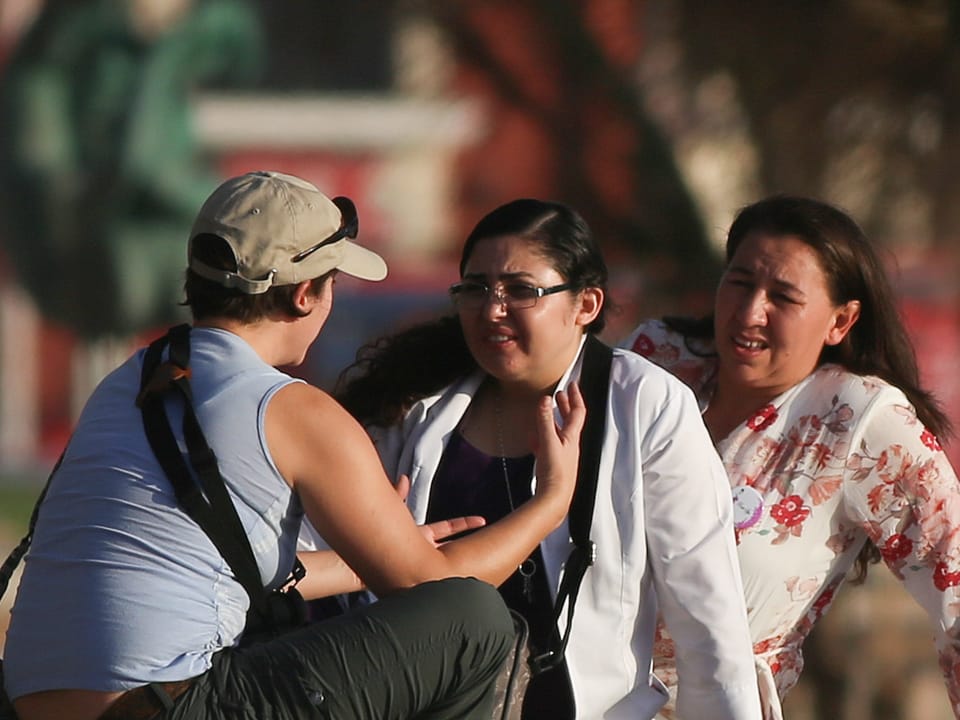
Manomet is excited to be joining with National Geographic and more than 190 other federal agencies, state and national parks, birding clubs, research institutions, conservation organizations, and media outlets for storytelling, science, and conservation action. Together, we declare 2018 ‘The Year of the Bird.’
Why have so many organizations come together to commemorate this year in particular as ‘The Year of the Bird?’ 2018 marks the centennial of the Migratory Bird Treaty Act; this law has saved millions, if not billions, of birds from the effects of habitat destruction, climate change, invasive species, collisions with human-made structures, predatory cats, and pesticides.
For more than 50 years, Manomet has been researching birds in order to better understand their migration patterns, habitats, population variances, and more. Trevor Lloyd-Evans, Director of Landbird Conservation, explains why the study of birds is so important: “Birds are extremely sensitive environmental indicators. And that’s a tremendous benefit and has been true since peregrines and DDT, the canary in the coal mine, and since bird flu was spreading through the world; they are very sensitive and are a great organism to study, in general.”
Lloyd-Evans added, “I think people have always regarded birds very positively. People just like birds and that’s an advantage if you’re trying to run a program and trying to get people interested in something slightly difficult to grasp, like climate change. You can show bird data and you’ve got their attention.”
How can you join in and celebrate ‘The Year of the Bird?’
- Visit BirdYourWorld.org to learn more about this important cause and sign a pledge to participate in a year of action for birds.
- Attend an upcoming Manomet birding event to learn more about these important animals and to meet the Manomet scientists who study them.
- Mark your calendar for Manomet’s 40th annual Bird-a-Thon, September 15-16! It’s the longest running Bird-a-Thon in Massachusetts.
- Enjoy and share our storymap about ‘The Journey of a Semipalmated Sandpiper’ and keep an eye out for future bird stories.
- Spread the word about how we can all help birds by using #BirdYourWorld on social media. Find bird news, research, and photos to share on Manomet’s Facebook, Twitter and Instagram accounts, as well as on the Celebrate Delaware Bay Facebook page and the WHSRN Facebook and Twitter accounts.
- Support Manomet’s Landbird Conservation and Shorebird Recovery work.
Our work to study and celebrate birds will continue far beyond 2018. Adds Lloyd-Evans, “We often work with other academics and organizations, which helps to address the important conservation questions that are illustrated so well by birds. These are questions regarding changes in population, or changes due to climate change, or questions that will affect people as well as birds—whatever happens to birds will happen to us soon after, so we’d better pay attention.”




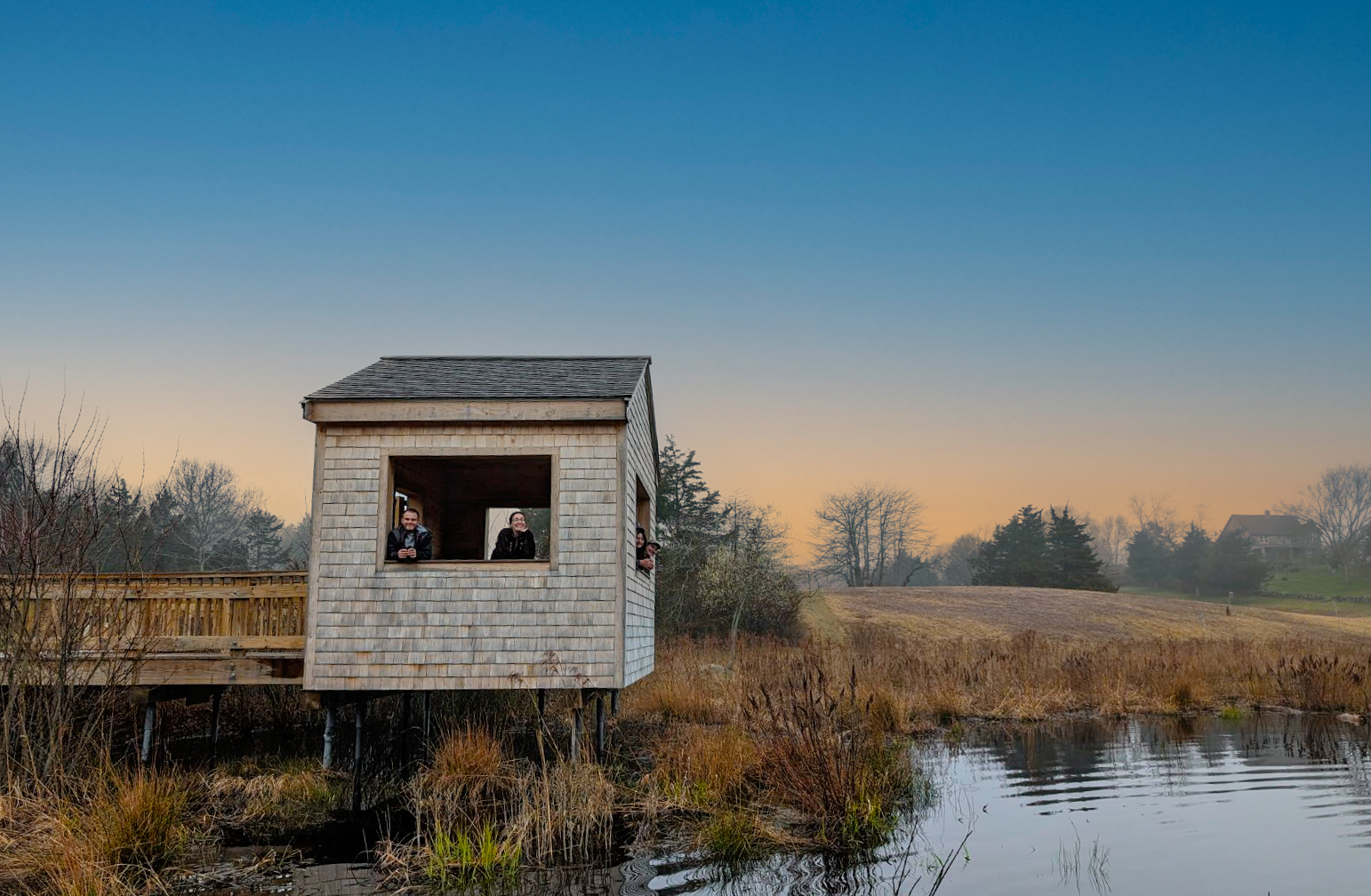
 Back to all
Back to all